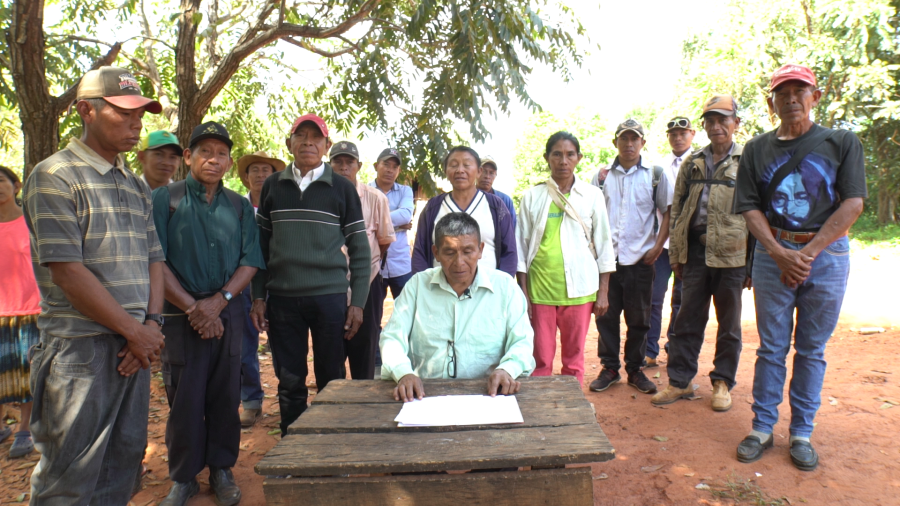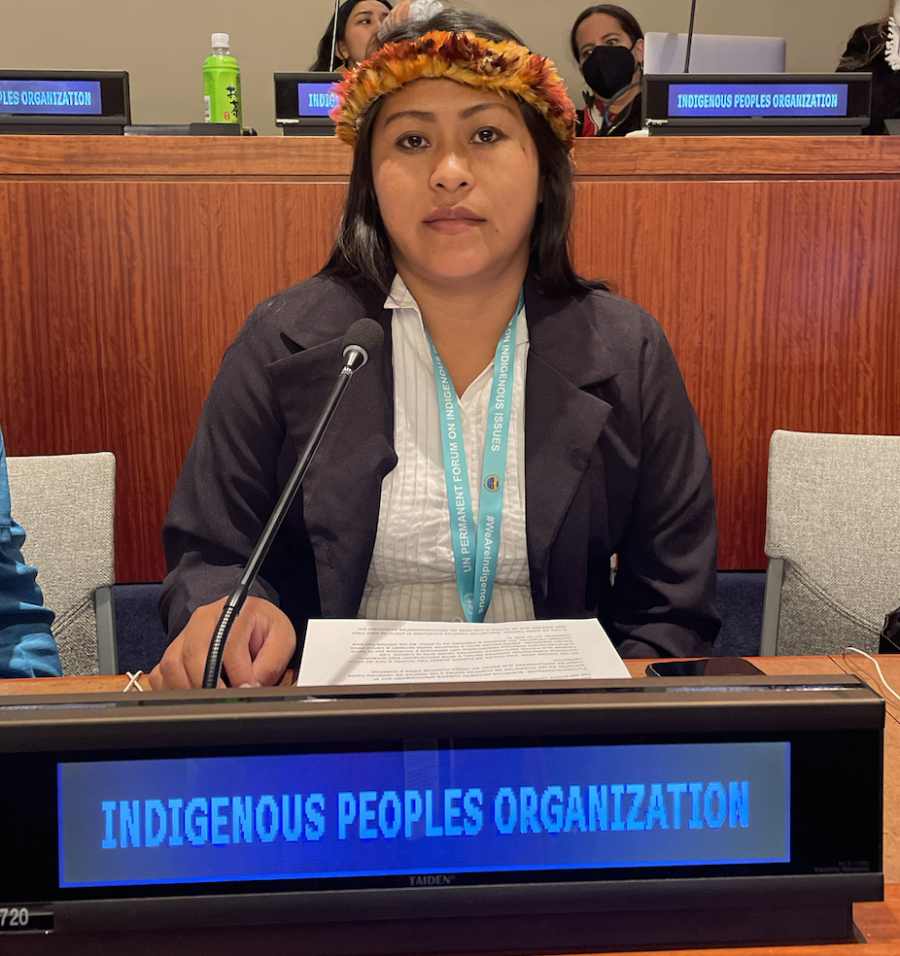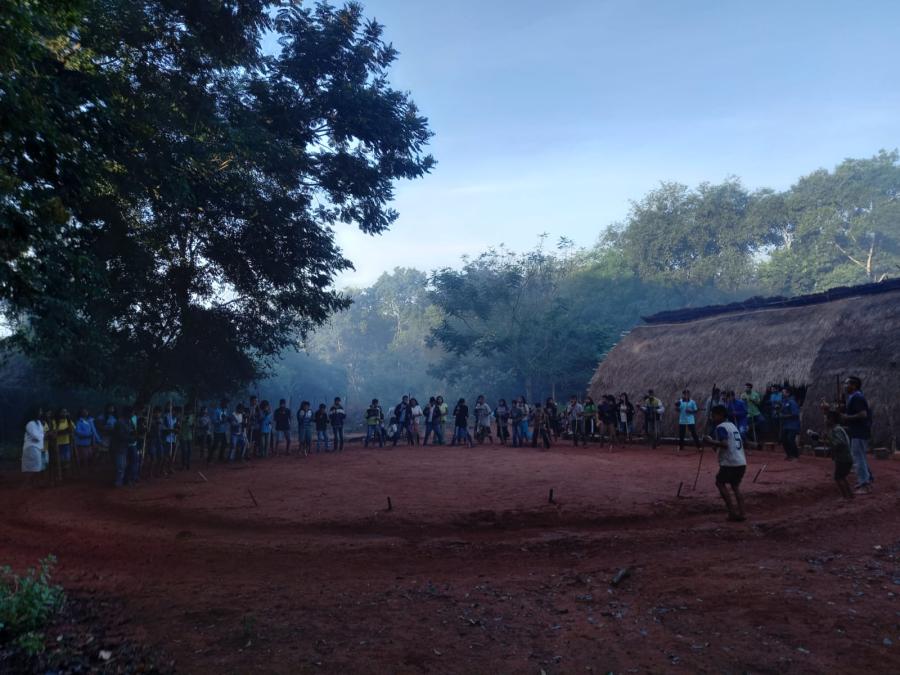Paraguayan law #904/81, the "Estatuto de las Comunidades Indigenas," was created in 1981 to provide land and land title to Paraguay's Indian communities. In the two years since the law's enactment, only two indigenous groups have received land; no resolve serious land problems that confront most Indians.
Law #904/81 guarantees land to Indians to protect traditional lifestyles and allow them to regulate tribal affairs. Thus, the law created the "Institute Paraguayo del Indigena" (IPI) within the Ministry of Defense. IPI is composed of government officials that act with presidential permission and the advice of Indian and indigenista groups. Under the law, IPI is to acquire sufficient, suitable land for every Indian group of 20 or more families. Funds for indemnifying owners of expropriated land are provided by taxes on land sales and banking transactions. The law also stipulates that all indigenous communities be granted title to their communal lands.
Paraguay's "Indian law" has accomplished little, but it has been hindered more by bureaucratic inactivity than by direct legal challenges. The federal government has not supported the law or the groups working to implement its mandate. Soon after the law passed. President Stroessner received the nominations for IPI's executive council yet delayed a full year before approving them. Throughout 1982 IPI was without funds or the authority to assist Indians.
Since January 1983, IPI has had the legal power to expropriate land for Indian communities, but has lacked both the funds and the political support to carry out an effective land acquisition program. There are more than 200 Indian communities in Paraguay. Well over half of these are located on private land, often ranches or other large scale agricultural estates. These lands are owned by a powerful elite in Paraguay. Expropriation is possible only with strong government support. Since its formation, IPI has committed all funds available to acquire only three small parcels of land.
One of the parcels acquired this year, for the Toba-Maskoy, illustrates the problems faced in enacting Law #904/81. In 1979, the national Indian agency attempted but failed to expropriate land from the powerful Carlos Casados company for the Toba-Maskoy, who later were forced from their homelands onto an inhospitable piece of land known as "Km 220." At that time the Minister of Defense, who directed the national Indian agency, did not have the political influence, or apparently the desire, to defend the Indians' rights. Finding Km 220 uninhabitable, the Toba-Maskoy abandoned the colony and negotiations were initiated to purchase their homelands from the Carlos Casados company. In October 1983 IPI announced that roughly half of its budget (US $225,000) had been used to acquire the land at Km 220; it discontinued efforts to expropriate land acceptable to the Toba-Maskoy.
IPI has shown little interest in using the law. This has been most evident in IPI's refusal to provide title to Indians that presently reside on "their" own land. Until Law #904/81 was passed, there were no means to legally recognize communal title to land. Consequently, government, missionary and secular organizations often hold title in the name of Indian communities, ownership to be transferred to Indian communities when possible. The Paraguayan national land bureau, Institute Bienestar Rural, presently holds title to land for more than 60 communities. In addition, 17 parcels have been bought for Indian use by missionary and private indigenista groups. Despite the fact that Indian communities can now hold legal title to land, IPI refuses to process their claims.
IPI claims that its bureaucracy is not organized to process land claims and that appropriate application forms have not been printed. Further, IPI has stated that Indians do not need title to their land; it is secured under a 1963 agrarian reform law.
Colonists, however, continue to settle on Indian land. As recently as September of this year part of the "Colonia Nacional Ache" was divided and sold to mestizo farmers. Recently, IPI lawyers suggested that it will not title land to Indians as it might exacerbate factional disputes within communities. IPI's attitude toward land titles appears to both ignore the Indians' desire for autonomy and subvert the intent of the law.
Finally, Law #904/81 demands that IPI draw up specific guidelines concerning the making and processing of requests for land and title. After two years, the guidelines have not been written. While this does not limit the power of the law, nor IPI's ability to use it, the guidelines are necessary for any private party that wishes to benefit from it. At present, only lawyers and expensive and time-consuming "trial and error" processes can discover what, if anything, can satisfy the demands of IPI. Likewise, IPI has made no effort to publish the law, or any materials concerning its use, in any Indian languages.
Despite IPI's refusal to initiate or support efforts to title land to Indians, at least six Guarani communities have submitted requests for title to their lands. The applications exemplify the ineffectiveness of the law. In accepting the requests and recognizing the legitimacy of the claims, the coordinator of IPI told the communities that the IPI council was not processing claims for title, and that even if they acted on the applications, the president of the country would have to approve any action.
As a result of the paralysis of the Indian law, Indians and indigenista groups are abandoning their efforts to acquire land or title through the law. In the Chaco, missionary groups and their lawyers have resorted to the purchase of land for displaced indigenous groups. If anything is to be gained through the law, they say, it will be too late to do the Indians any good. Secular groups have been even less successful. Without the funds or the diplomatic power of the missionaries, many have decided that it is politically dangerous to push land and title claims against an antagonistic bureaucracy. As a result, groups charged with defending Indians' rights do not dare to confront the government with their demands.
Prior to 1981 national and international attention was focused on the plight of the Paraguayan Indians. As a result, the Paraguayan government took measures to calm public opinion. Yet while Law #904 81 quiets criticism of Paraguay's Indian policy, it does little to assist indigenous groups.
Article copyright Cultural Survival, Inc.



